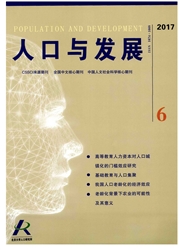

 中文摘要:
中文摘要:
鉴于理论研究、政策与农民工现实期望的巨大差距,从农民工在城市的工作生活情境和现实需求出发重新界定了群体社会融合的内涵,并从经济融合、行为适应和心理融合三个维度实际测量了农民工群体的社会融合水平。对农民工社会融合的影响因素作了比较深入的分析,发现教育之外其他因素对不同维度的社会融合存在明显的结构性影响差异。促进农民工社会融合程度全面提升,必须切实推进和落实户籍、社会保障等深层次改革。
 英文摘要:
英文摘要:
Given the huge gap between theory, policy and realistic expectations of migrant workers, the paper redefines the meaning of social assimilation from the view of the real life situations in the city and demands of them, and the degree of social assimilation of them is measured firstly from three dimensions including economic assimilation, behavioral and psychological ad- aptation. Then we conduct an empirical analysis of influencing factors of social assimilation on migrant workers, and find that other factors except the education play the structural impact on social assimilation of different dimensions. The social assimilation of migrant workers can not be improved comprehensively until hukou registration system, social security and other deep - seated reforms be promoted and implemented effectively.
 同期刊论文项目
同期刊论文项目
 同项目期刊论文
同项目期刊论文
 期刊信息
期刊信息
